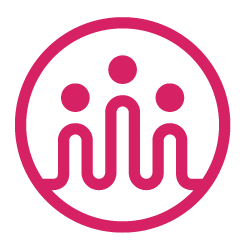It is always a good idea to seek help from those who are experts in their field.
1. Inpatient Treatment Programs
Overview
Inpatient programs provide an immersive treatment experience where your child stays at the facility for a duration, typically ranging from 30 days to several months. These programs offer a structured environment, focusing on intensive therapy and healing.
Benefits
The immersive nature means 24/7 support and care. This setting is conducive for those needing to break free from daily triggers. Medication-Assisted Therapy (MAT) can also be part of the treatment, helping to manage withdrawal symptoms and cravings.
Finding Reputable Centers
Consider factors like location, specialization in specific types of addiction, cost, and, most importantly, the program’s success rate. Websites of reputable addiction organizations often have directories for such facilities.
2. Outpatient Treatment Programs
Explanation
Outpatient programs allow your child to live at home while receiving treatment. These programs range in intensity and can include individual therapy, group counseling, and educational workshops on addiction.
Types
There are various forms of outpatient treatment, including day programs, evening sessions, and online support groups. The flexibility allows your child to maintain daily life, like school or work.
Locating Centers
Look for programs that align with your child’s needs and schedule. Local health departments, addiction specialists, or online databases can be starting points for finding suitable outpatient services.
3. Combining Inpatient and Outpatient Treatment
Integrated Approach
Some individuals benefit from starting with inpatient treatment for stabilization, followed by transitioning to outpatient programs for ongoing support.
Continuum of Care
Finding centers offering inpatient and outpatient services can ensure a smooth transition and continuity in treatment approaches and staff.
4. Selecting a Treatment Center
Key Considerations
Evaluate factors like the center’s accreditation, staff qualifications, treatment philosophy, and success stories or testimonials from former patients.
Research Tips
Visit potential centers, discuss with staff, and check if the treatments align with your child’s needs. Understanding insurance coverage and financial options is also essential.
5. Complementary and Integrative Therapies
Holistic Support
Therapies like acupuncture, yoga, meditation, and mindfulness can complement traditional treatments. They often address underlying issues related to addiction, such as stress or trauma.
Finding Practitioners
Seek qualified practitioners experienced in addiction treatment. These therapies can be found in some treatment centers or through independent practitioners.
6. Support Groups and Recovery Communities
The Power of Community
Support groups provide a platform for shared experiences and collective healing. They range from 12-step programs like AA or NA to alternatives like SMART Recovery.
Locating Groups
Local health organizations, treatment centers, or online resources can help find suitable groups. Family therapy groups are also valuable for healing the family unit.
7. Ongoing Aftercare and Relapse Prevention
Sustaining Recovery
Post-treatment support is crucial. Aftercare programs and support groups help maintain sobriety, offering resources and community support.
Relapse Prevention
Strategies include identifying triggers, building healthy coping mechanisms, and having a robust support system. Regular attendance at support meetings can be vital in this stage.







